Five Iranian Border Guards Killed In Sistan-Baluchestan Clash
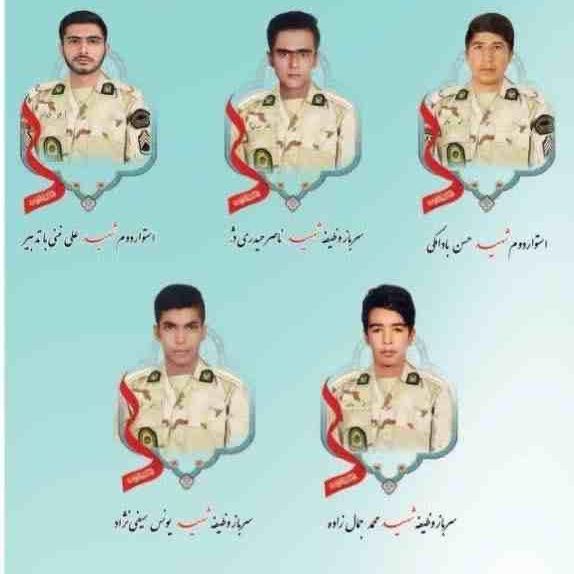
At least five Iranian patrol officers died on Saturday in a clash with what the regime calls “terrorists” on the Pakistani border.

At least five Iranian patrol officers died on Saturday in a clash with what the regime calls “terrorists” on the Pakistani border.
Iranian media reports that the border guards spotted a group of armed men near the border in Saravan, in the southeastern province of Sistan and Baluchestan.
The five officers were killed in the ensuing confrontation with the “terrorist group” on Saturday night.
Two other guards were left seriously injured and are in a critical condition, it was also reported.
There is no information about the affiliation of the armed group, but several Baluch groups from the area are fighting an insurgency against the Islamic Republic.
The most prominent is Jaish al-Adl, which has often targeted Iran's military, especially the Islamic Revolutionary Guard Corps (IRGC).
Saturday’s clash comes only a few weeks after the head of the Saravan Intelligence Police, Alireza Shahraki, was shot dead by unidentified gunmen.
Baluchestan news website Halvash reported that Shahraki had used "extremely violent" methods against detainees for years.
In recent months, the situation in Sistan-Baluchistan has dramatically worsened. The area’s cities have become very tense, especially on Fridays, when residents come out to protest against the regime.
There have reports of numerous attacks on military and government forces in the province in the months since the death in custody of Mahsa Amini last year sparked protests nationwide.
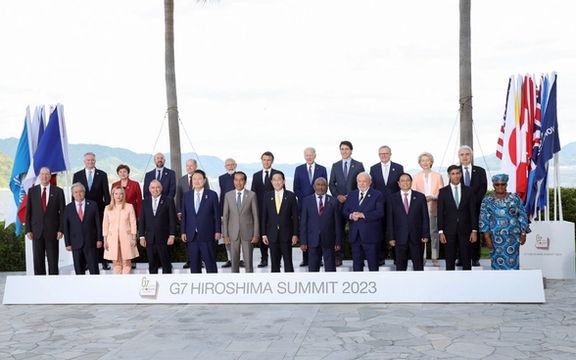
Iran received two international rebukes this week, one by G7 countries meeting in Japan and another by the Arab League summit held in Saudi Arabia.
The G7 summit strongly criticized Iran’s nuclear, human rights and regional policies in its final communiqué in direct and no uncertain terms.
The main trust of the G7 statement was Iran’s nuclear program, which is advancing by more uranium enrichment, without much international monitoring or the prospect of an agreement to limit its scope.
“We reiterate our clear determination that Iran must never develop a nuclear weapon. We remain deeply concerned about Iran’s unabated escalation of its nuclear program, which has no credible civilian justification and brings it dangerously close to actual weapon-related activities,” the final communiqué said.
However, the G7 also reiterated that a diplomatic solution “remains the best way to resolve this issue.”
Talks lasting 18 months form April 2021 to August 2022 between the signatories of the 2015 JCPOA nuclear accord reached a deadlock last September, and the United States pulled back from the process, saying that Iran destroyed the chances for a deal in the 11th hour.
The Arab League meeting in Jeddah, Saudi Arabia did not mention Iran in its final declaration, but one particular clause was clearly aimed at Tehran’s regional activities aimed at building armed proxy groups in Arab countries.
“We call for stopping foreign interference in the domestic affairs of Arab countries and categorically reject all support for the formation of armed groups and militias outside the scope of state institutions,” the statement said.
However, it was reported that two other sections in the draft document were deleted from the final declaration. One reiterated Arab support for territorial claims by the United Arab Emirates from Iran, and the other a positive remark about restoration of ties between Riyadh and Tehran.
The UAE has periodically raised the issue of three small islands in the Persian Gulf that the former Iranian imperial government took over in 1971 as British forces guarding the littoral Arab sheikdoms withdrew from the region.
Iranian media reported Sunday that the two sections were deleted from the final declaration apparently as a result of a compromise.
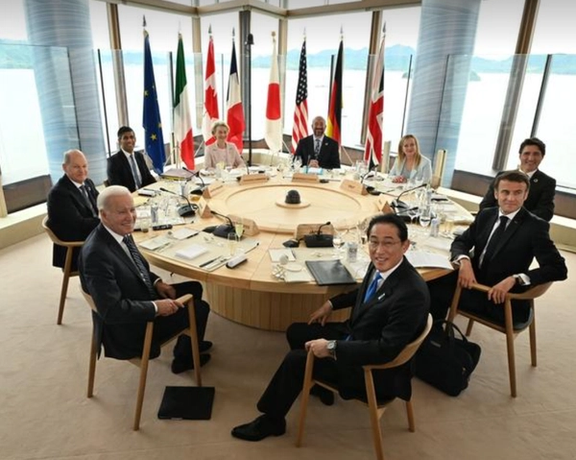
Which Arab League states objected to the inclusion of the territorial claim remains unclear, but the presence of Iran’s ally, Syria’s Bashar al-Assad at the summit could have played a role. It would have been extremely embarrassing for Assad to put his name on a statement that would include such a demand while he still depends on the Iranian regime both militarily and economically.
Iran is still unhappy with the Arab summit despite this victory. Foreign ministry spokesman Nasser Kanaani Sunday criticized the language in the final communique, saying Iran expected the meeting to forego “repetitive and tiresome claims” against Iran.
However, the more serious rebuke Iran received was undoubtedly the G7 declaration, which also slammed Tehran’s human rights record, its regional policies, and its military support to Russia in its invasion of Ukraine.
“We express our grave concern regarding Iran’s continued destabilizing activities, including the transfer of missiles, unmanned aerial vehicles (UAVs) and related technologies to state and non-state actors and proxy groups, in breach of UNSCRs including 2231 and 2216.”
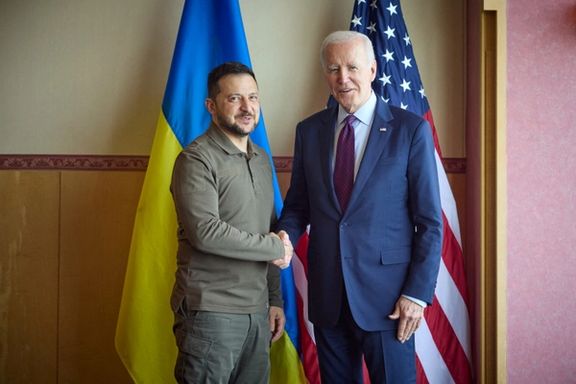
The tone of the G7 statement about violations of UN resolutions is ominous for the Islamic Republic.
The accumulation of its unabated uranium enrichment, regional interventions that fueled recent Israeli Palestinian fighting, and its provision of weapons for Russia can all add up and lead to an effort by the West to revive international sanctions against Tehran.

At least half of Iran lives below the poverty line as the government fails to solve the economic crisis, a leading economist warns.
Hassan Raghfar said the main problem is that the authorities are unable to increase the welfare provision for the 50% or more of the population now in desperate need.
The Al-Zahra University professor said that although the government is supposed to present a plan to the parliament with the aim of curbing inflation and production growth, he fears it will only result in worsening conditions still further.
His analysis comes after a member of the Expediency Council, Ali Aqa Mohammadi said 19.7million Iranians lack basic life facilities such as housing, employment, education, health, food and clothing.
With Iran enduring inflation of more than 40% for several consecutive years, salary earners whose wages have enjoyed annual increases of only a few percent have seen their real purchasing power plummeting by half, according to economist Albert Beghouzian.
Islamic Republic authorities keep promising to control inflation. In his New Year speech on March 21, Supreme Leader Ali Khamenei promised what he said would be “the year of bringing inflation under control”. The pledge was echoed by President Ebrahim Raisi in his speech, but is all too reminiscent of what proved to be empty slogans in previous years.
The majority of Iranians have fallen into what government officials describe as poverty and can no longer afford meat and even fruit and vegetables, with consumption dropping by half.
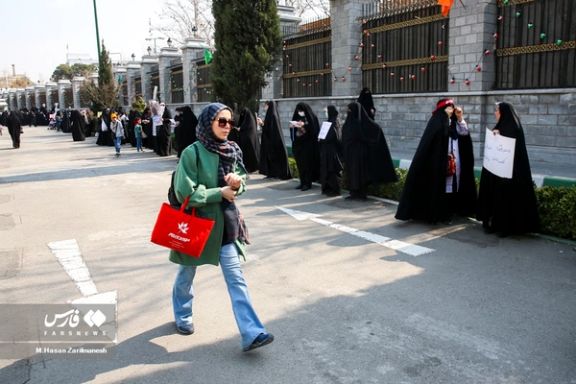
Mostafa Abroshan, an Iranian sociologist says that young Iranians do not trust the government, as they lost hope in the future.
Abroshan warned the Iranian government that trust in the ruling establishment cannot be restored by decrees and orders. While corruption and favoritism have enriched a small minority, poverty has risen to unprecedented levels.
The sociologist asked: "How can young Iranians trust the government while most of them do not have a job?" He argued that "The distrust is rooted in the country's crisis of management. In order to solve this problem, the government needs to appoint qualified individuals with the right kind of specialization to key jobs, and make knowledge and rationality govern the country's institutions."
Abroshan was referring to statements by Iranian officials including President Ebrahim Raisi, who promised repeatedly during the past two years to create one million jobs annually for young Iranians but broke their promise. Raisi has even claimed that those jobs have been created!
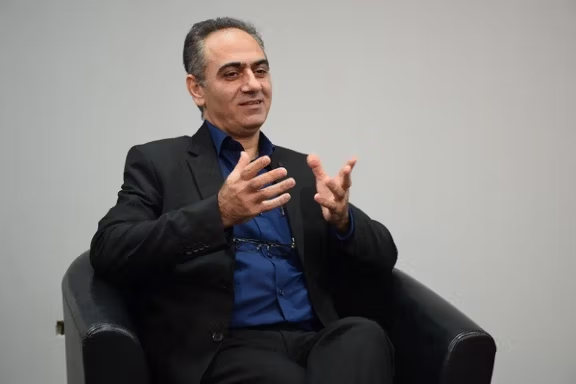
Also in some cases, officials make outlandish promises without thinking of the implications of what they say. On Wednesday, Telecommunications Minister Isa Zarepour promised that his ministry will make sure Internet speed increases by 80-fold this year.
The astonishing promise was made while people suffer from extremely low Internet speed and the banning of nearly all social media platforms on which many small businesses and more than 10 million families depend for a living.
In another example, Iranian academic Mostafa Mehraeen complained that young Iranians simply want to live a normal life but as soon as they criticize the authorities’ impolite treatment of the youth, security forces attack them and the officials accuse them of being drug addicts.
Abroshan also said that social capital (government legitimacy) is the spirit of the nation. People learn about it during the process of their socialization. It lends meaning to human communication and boosts solidarity and social participation. He added that mutual trust between the people and government is one of the most important factors of social capital which makes cooperation between various parts of the society possible.
Trust will be enhanced if the people see that the government meets their expectations, Abroshan said, adding that otherwise the people come to believe that the country's economic and social institutions do not represent their views and expectations. As a result, distrust of the government builds up and the ruling establishment loses all legitimacy.
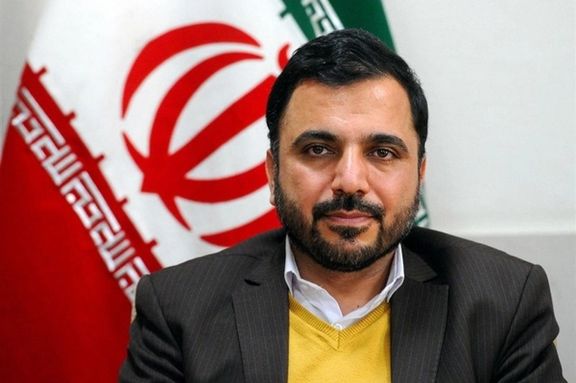
Explaining the situation of trust in government, Abroshan said, "when the police do not respect citizens and treat them with violence as we have seen, the situation triggers anger and leads to behaviors such as attacking and overturning police vehicles." He added that when he, as a sociologist, criticizes the situation out of sympathy for the people and the government, officials accuse him of portraying a disparaging image of the social situation.
He reiterated, "Mutual trust between the people and government no longer exists. "The government constantly calls on the people to fulfil their social responsibilities, but at the same time, constantly undermines their citizenship rights." He added: "The distribution of wealth in the Iranian society is unfair and inequality has polarized the society."
Abroshan further pointed out: "Currently Iranian citizens and the government refuse to recognize each other. As a result, any event that hurts the people's feeling can trigger a social

A major water dispute between Iran’s clerical regime and the Taliban continues as a Tehran officials issue warnings and the Afghan rulers ridicule them.
A Taliban official appeared in a video holding a bucket at the edge of a reservoir and saying he wants to give water to Iran. He ridiculed the Iranian regime’s president Ebrahim Raisi who had earlier used threatening language. “I want to give water, so Iran’s president does not launch a military attack.” The video went viral on social media.
Iran's foreign ministry Friday “strongly refuted” Taliban’s claim over lack of enough water in the river Hirmand (Helmand in Afghan) due to draught to release Iran's share of the river’s waters.
The foreign ministry also said Taliban’s statement over the issue contained “contradictory and false information”.
Energy Minister Ali-Akbar Mehrabian said Friday that the government is determined to pursue Iran's water rights according to the Afghan-Iranian Water Treaty of March 1973 to regulate the use of the river.
The Taliban’s claim that there is not enough water to flow from Kajaki dam towards the Iranian border is not acceptable and is in contradiction to the experience of the past few years, he said.
Foreign Minister Hossein Amir-Abdollahian also accused the Afghan government in a tweet Thursday of not allowing Iranian experts to investigate the matter in Afghanistan despite his repeated requests. “Proof of existence or lack of water is technical and actual visit [by experts], not a political statement [by the Taliban],” he wrote.
Spokesman of Iran's Aerospace Organization, Hossein Dalirian, said in a tweet Thursday that images from Iran's Khayyam satellite indicate that the government of Afghanistan has stopped the waters from reaching Iran by changing the course of the river in some areas and building “numerous” barriers.
The halt in the flow of water from Afghanistan has seriously affected the lives of hundreds of thousands in the southeastern province of Sistan and Baluchestan.
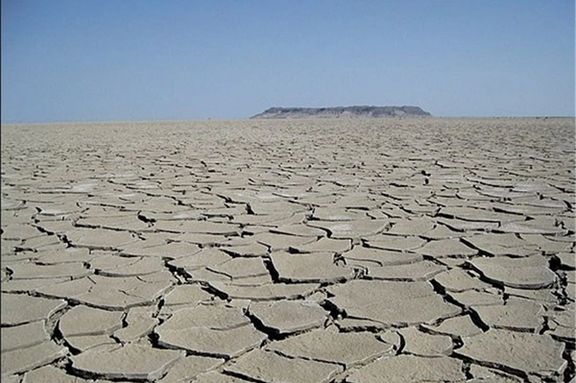
While Afghanistan says it needs dams to store water for agriculture or to produce electricity, which it imports from neighboring countries including Iran, many environmentalists are critical of large-scale water engineering projects.
The Iranian government, and environmentalists, argue constructing the dam on Helmand River will deepen problems in Iran’s eastern provinces, particularly in Sistan-Baluchestan where water resources are scarce. Declining rainfall since late 1990s, which caused prolonged droughts in the Helmand basin, as well as water mismanagement both in Afghanistan and Iran, has had serious ecological, economic and social impact.
Wetlands in Sistan have largely turned into salt flats, the once rich wildlife has disappeared, and many local villages abandoned. In 2019, after nearly two decades of drought, water from Helmand reached the wetlands of Sistan and partially revived the Hamoun-e Hirmand Lake. The lake is a UNESCO biosphere reserve.
The dispute between the two countries over water is long standing but it has escalated in the past few years.
In March 2021 in a televised speech inaugurating the Kamal Khan Dam in Nimroz province, former Afghan President Ashraf Ghani said that while Afghanistan remained committed to the treaty but added that "anything beyond the stipulated quota" required further discussion. He suggested that Iran should pay for ‘extra’ water from the Helmand River by providing oil to his country.
His remarks appeared to refer to Article V of the 1973 treaty, which stipulated Iran in "a normal water year" was entitled to a flow of 22 cubic meters per second from the 1,150km (700 mile) long river.
Hirmand rises in the Hindu Kush before flowing west into Iran and feeding an area of wetlands in the Sistan region including Hamoun Lake. Iran has not always received this amount – in 1999, for example, the Taliban turned off the flow completely.
President Ebrahim Raisi's special envoy for Afghan affairs, Hassan Kazemi Qomi, said Tuesday that Iran received 27 million cubic meters of water out of the 820 million cubic meters it was entitled to under the 1973 treaty.
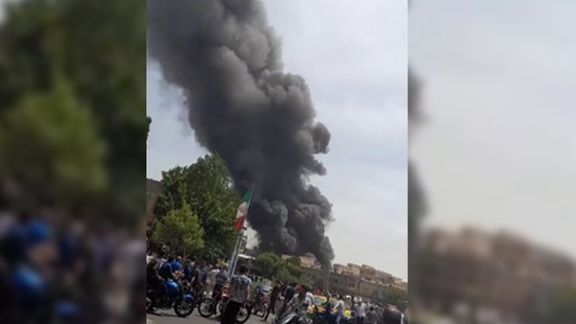
A large fire has engulfed a warehouse in Tehran, a regime-affiliated news agency has reported.
According to Fars, firefighters are attempting to extinguish the blaze after the warehouse for automobile and motorcycle parts caught fire in Razi Square, in the south of the Iranian capital.
Seventeen people have been injured, and several have been taken to hospital, Tehran Emergency Service said.
The cause of the fire and the value of property damaged are unknown.
Last month a large fire broke out across three warehouses of a home appliances manufacturer in the northeastern city of Mashhad.
The semi-official ISNA news agency reported that the building belonged to Electrosteel, a large and well-known company in Iran.
There have been a number of explosions and fires near Iran’s military, nuclear and industrial facilities in recent years.
Earlier this month, media in Iran reported that a large fire broke out at a power plant west of the Iranian city Esfahan (Isfahan) and was extinguished within a few hours.
Several unconfirmed sources reported hearing an explosion at the plant, claiming that it was a result of drone attacks, but this was not confirmed by officials.
The Esfahan thermal power plant – also known as Shahid Abbaspour – in Dorcheh near the central city of Esfahan has five units with a total generation capacity of 830 Megawatts.
On January 28, a huge fire erupted at an Iranian military industry factory following a suspected drone strike in the central city of Esfahan.
Iran blamed Israel for the drone attack, vowing revenge.